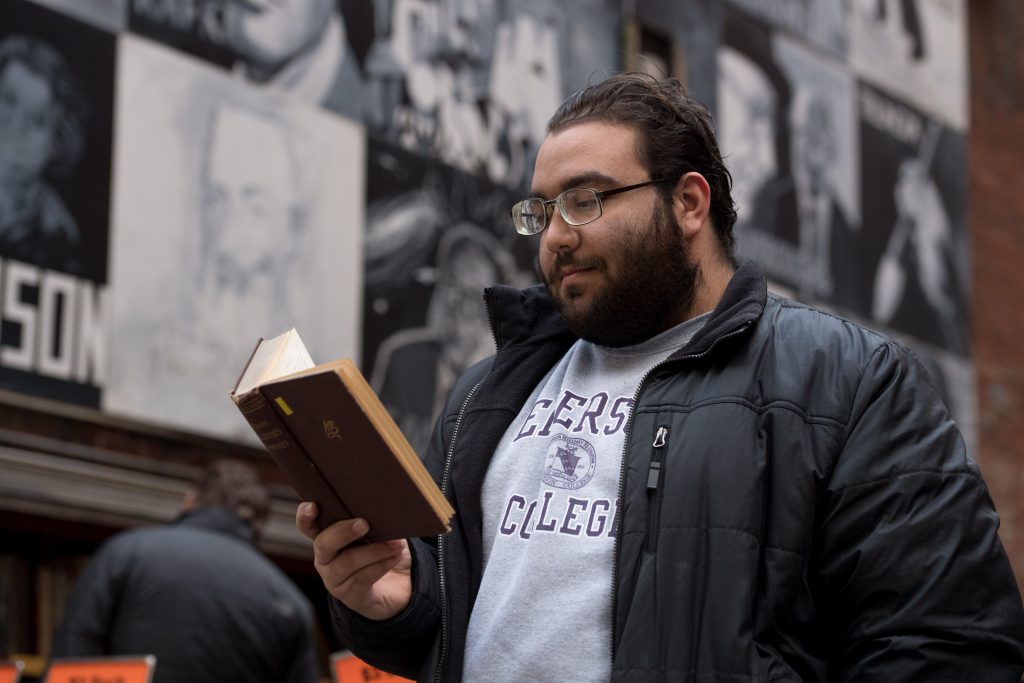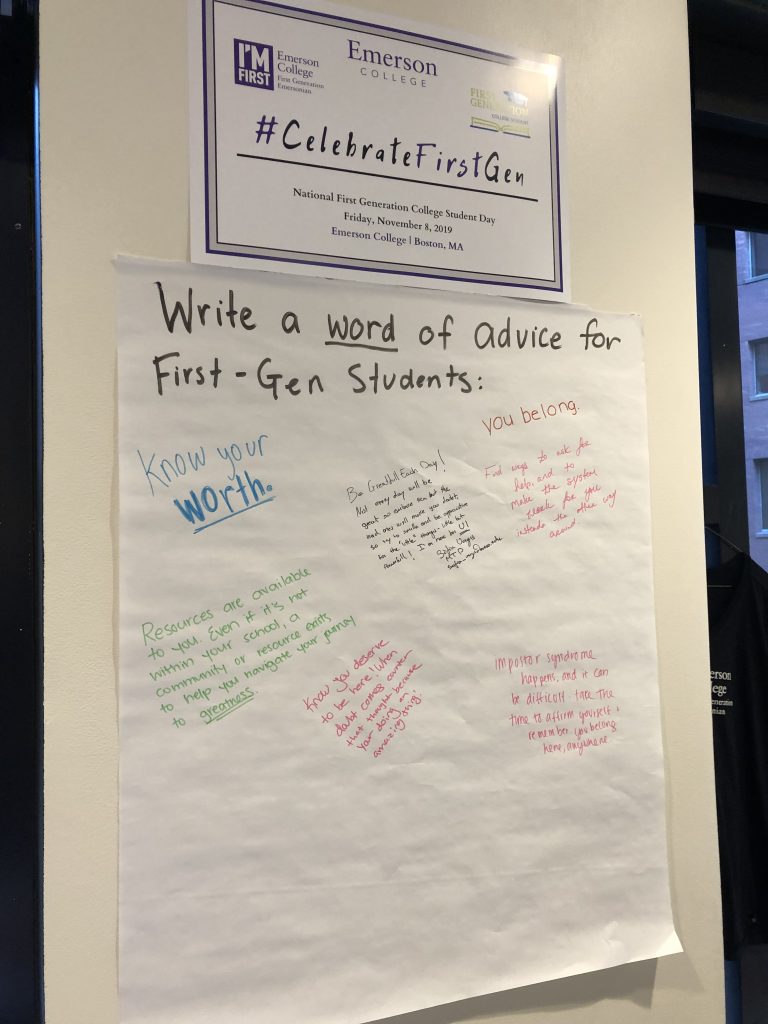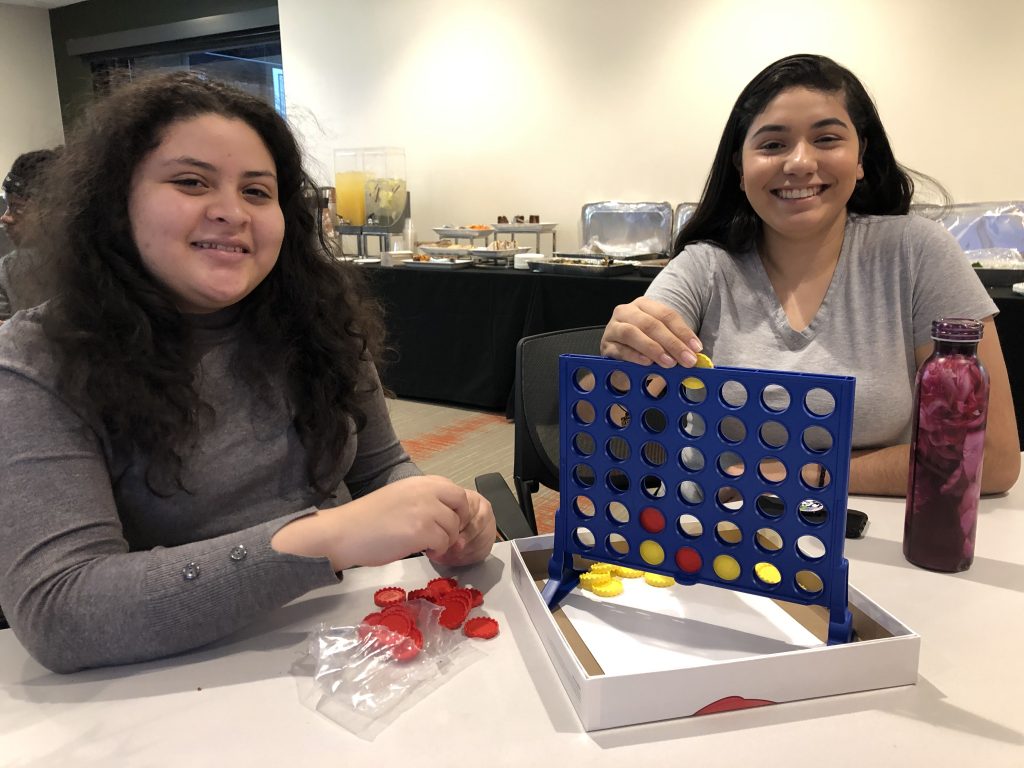Without Having Been There, Done That, First-Generation Student Group Provides Needed Support
By David Ertischek ’01
College comes with challenges for anyone, no matter their socioeconomic background. But it can be especially hard for first-generation and/or low-income students who may not have the experience or resources to navigate everything that goes with attending college.
That is why Emerson students Anthony Rodriguez ’21 and Cassie Poirier ‘19 created First Gen E-M.
“There are two different experiences at Emerson. My first semester I was lonely. I felt like I had impostor syndrome, living a life I wasn’t supposed to live,” said Rodriguez, who like Poirier, is a first-generation, low-income student.

Rodriguez said that a low-income student is defined as someone who needs substantial financial aid. He said after meeting and bonding with Poirier, the two discussed what it’s like to be a student who needs to account for every dollar, work multiple jobs, all while balancing schoolwork and extracurricular activities that often cost extra money.
Poirier said she began matriculating at Emerson in 2014, could not afford to live in the residence halls for sophomore year, had a very large bill, and had to take time off from the College. She moved back home, paid off her bill, and then returned to Emerson.
Poirier has watched her boyfriend get advice from his parents on applying to graduate school and what classes to enroll in. Witnessing that kind of parental input blew her mind, as she makes all of her decisions on her own.
She said it’s not that her parents aren’t supportive, they just don’t know what to ask her about college, because it’s hard for them to relate to her experience.
It wasn’t until she met Rodriguez that she fully grasped it, she said.
“When I came back to Emerson I kind of assumed everything would be good. I still felt isolated and had to work extra hard to make ends meet and stay in classes,” said Poirier. “I kept telling people I wish there were a club or organization that could help me. People said, ‘Why don’t you make your own?’”
With Rodriguez, she did just that, and since being formed in Spring 2018, First Gen E-M has helped many students navigate the maze of financial aid, provided information on resources such as grants and employment opportunities, and offered emotional support.

Each Emerson College class has roughly 15 percent of first-generation students, said Christopher Grant, associate director for the Office of Student Success. Grant said that no official statistics are kept, because students aren’t explicitly asked on their application.
He added this year is the first time resources have been specifically named to support first-generation and low-income students.
“I want them to feel like citizens of Emerson and Boston,” said Grant. “We want them to have the full experience, not partial and looking in. We want to help them immerse themselves in Emerson and have them teach us how to make Emerson better and not use just them for marketing and one-off events.”
Grant said other colleges and universities, such as Dartmouth and Stanford, have also created similar programs to help guide students from admission all the way through graduation, including things such as dealing with financial aid and other pitfalls they may meet upon their college career.
On November 8, students gathered for the Second Annual First Generation Student BBQ Reception to eat, play games, share stories, and swap advice.
“I didn’t realize my struggles came from being a first-generation student,” said Madi Doelling ’20. “When I met other first-generation students, that’s when I realized what it was from, and I found a community of support.”
Doelling said many first-generation students need support not provided by their parents, oftentimes because their parents don’t know what their child is going through.
For Doelling, hearing similar stories made her feel less lost and alone. She’s also reaped the rewards of having a new supportive and knowledgeable community that has advised her on applying to graduate school, with a goal of receiving a Ph.D. in comparative literature.

Sitting across from Doelling was Disneiruby Parra ‘23 playing Connect Four with Kelly Moreno ’22. Both native Californians, the two bonded through First Gen E-M, on topics like how their parents questioned their moves across the country for college. Through First Gen E-M, Parra learned about employment opportunities, and knows she’d like to be a peer tutor through the Writing & Academic Resources Center (WARC).
Just going through the first several months of her college career has already helped Parra gain enough knowledge to advise her younger siblings.
“My sister has questions about college that I can answer – admissions, and college life in general.”
Through First Gen E-M, Moreno learned about the Student Assistance Fund.
“One of my VMA classes, we have to spend a lot on extra materials,” she said. “The program helped me get extra things that are pricey and add up during the semester, because you need it for class.”
For Rodriguez, creating the organization led to making close friends, gaining invaluable insight about the college process, and giving him confidence.
“I know Emerson is the place I need to be,” said Rodriguez.
Categories